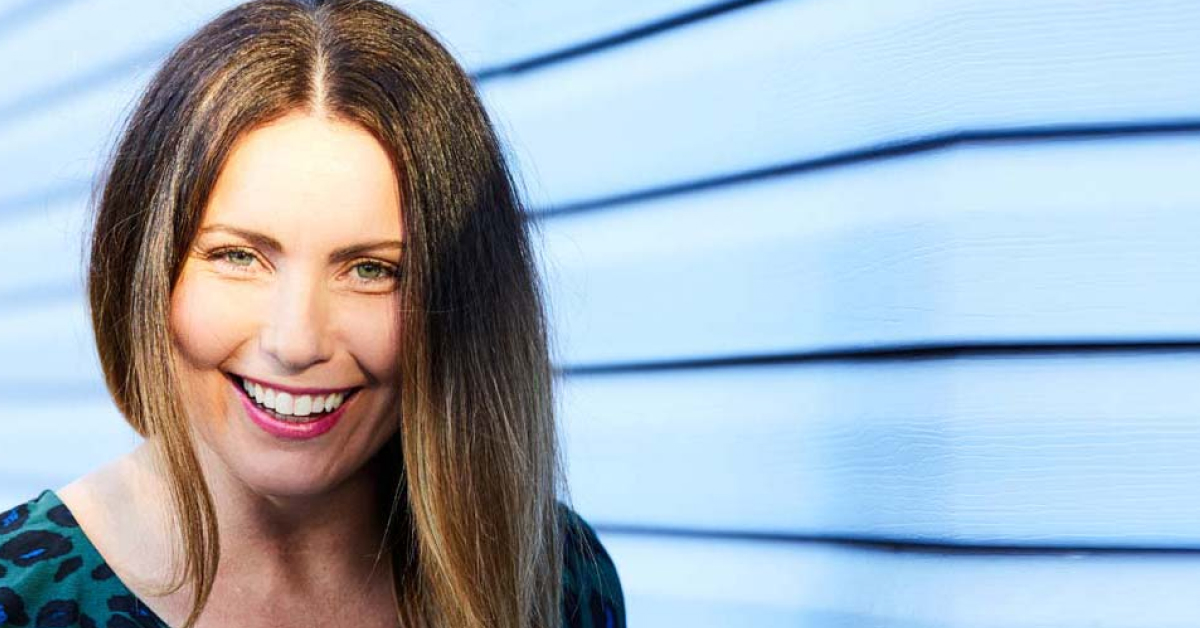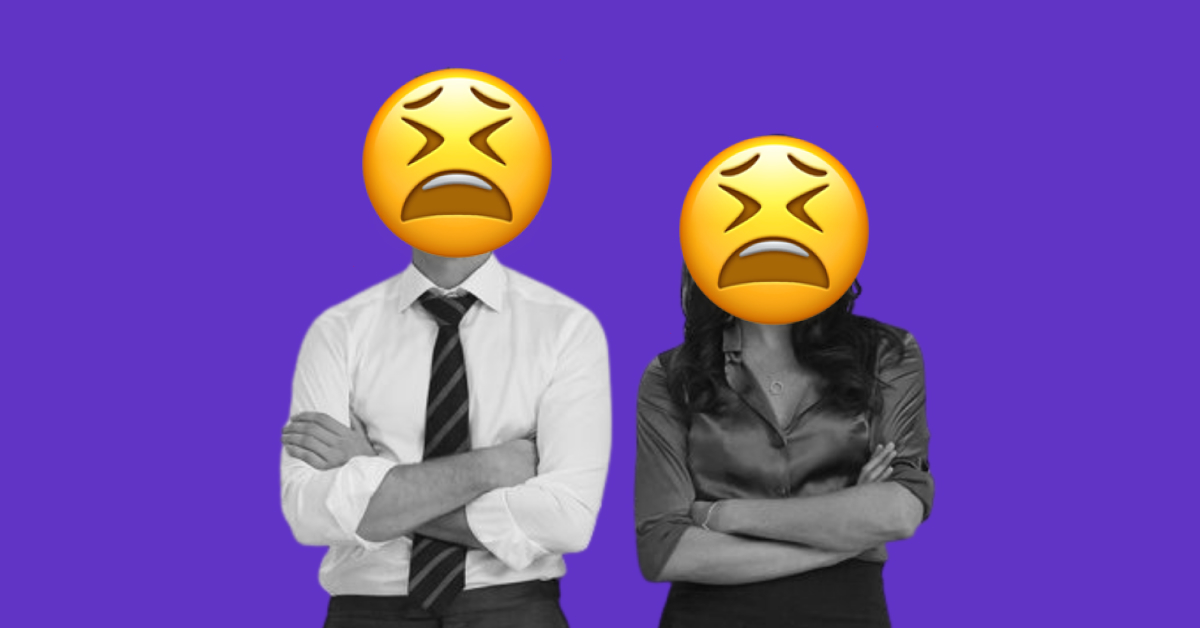“We’re high achievers, we tend to be perfectionists, and we apply that very high bar of success to all aspects of our lives.”– Clarissa Rayward
Can new technology ease lawyer burnout?

Family lawyer Clarissa Rayward is the author of Happy Lawyer, Happy Life.
When anyone is feeling stressed out, exhausted, and relentlessly unmotivated at their job, they should try eating well, exercising or seeing a therapist.
There’s plenty of scientific evidence to back up the benefits of self-care pursuits. Is there also room for automation tools like Josef to combat chronic workplace stress?
We explore the ins and outs of lawyer burnout, and chat to Clarissa Rayward, author of the book Happy Lawyer, Happy Life and podcast host of The Happy Family Lawyer, about how lawyers can ice the burn.
Welfare check: How are lawyers doing?
For Australian family lawyer Clarissa Rayward, the author of Happy Lawyer, Happy Life, and Director of the Brisbane Family Law Centre, burnout looked like “genuinely not wanting to go into work.”
“I wasn’t sleeping well, I was very, very tired. I would be up at night thinking and worrying about things…and [had this] general grey cloud feeling. Everything seemed heavy and difficult and it was hard to see the way through.”
She sees burnout as a potential “warning stage” – the step before you get to a really difficult place, like a medical mental health condition.
Data from multiple studies spanning over a decade across the world highlights a concerning trend of poor mental health among lawyers.
The stats
-
85% Anxiety
Experienced by lawyers in SMEs in Australia and New Zealand
-
60% Depression
Experienced by lawyers in SMEs in Australia and New Zealand
-
74% Burnout
Experienced by lawyers in the US
-
96% Stress
Experienced by lawyers in the UK
What is burnout?
Have you ever seen a car do a burnout? The car spins while the wheels remain stationary, causing the tyres to smoke from friction. This is similar to how our bodies respond to occupational stress. We can feel stagnant and like we’re not going anywhere.
The term burnout was first used in 1974 to describe chronic work stress by American psychologist Herbert Freudenberger. It’s entered mainstream vocabulary today, partly due to stronger social awareness around wellbeing and mental health, especially amid today’s global pandemic.
The three main features of burnout are exhaustion, distancing oneself from work, and reduced productivity.
Signs of a person with burnout include being socially withdrawn, taking frustrations out on others, being absent from work, having trouble sleeping and getting frequent headaches.
The World Health Organisation categorised burnout as an occupational hazard in 2019, defining it as “a syndrome… resulting from chronic workplace stress that has not been successfully managed.”
It’s important to stress that burnout is not a medical condition, though it can overlap with characteristics of depression and anxiety.
Burnout ingredients: Dedication and commitment
So why are lawyers around the world feeling this way? They’re often perfectionists, Clarissa says, and this predisposes them to burnout.
“The type of people that we are, we’re high achievers, we tend to be perfectionists, and we apply that very high bar of success to all aspects of our lives.”
Freudenberger, the psychiatrist who coined burnout, observed a type of personality that makes people inclined to burnout – “the dedicated and the committed”.
“We work in an industry that has, by and large, a much more pessimistic focus than an optimistic focus,” Clarissa says.
A survey by the University of Virginia found pessimistic law students outperform their optimistic peers and this, she says, shows in the profession.
“We have a large cohort of naturally pessimistic people, and then we find ourselves doing work where… we’re advising people on all the things that can go wrong in life, as opposed to focusing on what goes right.”
“That kind of thinking gets applied across the board to your life, and it can be hard to get out of it.”
Burnout is expensive
Burnout affects productivity and it’s also very costly for the legal industry due to turnovers and absence from work.
An early 2008 study by the University of Sydney’s Brain and Mind Institute revealed that burnout costs the industry $10.9 billion a year in absenteeism, decreased productivity, and compensation claims.
It also increases the risk of turnover. Across the 400 largest firms in the United States, the lawyer turnover rate costs the legal industry roughly $9.1 billion.
So what’s the answer to burnout?
Prioritising breaks, health, and relationships
Clarissa says it’s the simple things that we need to value and create space for.
“We [lawyers] lead a very sedentary lifestyle. Overwork is a cultural thing that’s championed in the legal industry – ‘how hard are you working?’ Everyone tends to overwork, which then doesn’t create space for the things that really do matter. So having a baseline focus on ensuring you’re eating well, ensuring you’re exercising and sleeping.
“Sleep fatigue is one of the biggest problems in the world of law, people don’t sleep.” She recommends getting to bed early and getting a full 8 hours of sleep. “You’ll notice [change] immediately.”
“If possible, take a break. A lot of people say they don’t have time, but even just taking a four day weekend can sometimes be enough as a circuit breaker.”
Being able to identify that you’re experiencing burnout is difficult when you’re in it, says Clarissa. So tuning into how you’re feeling “is a big step forward.”
“Positive relationships make the biggest difference to how long we live…and to think about that in context of the culture I work in, that is of overwork, and pride in professional status, relationships with your friends and your family and people outside of work come second all the time.
Really focusing on creating space in your life to be with the people that matter to you, will make not only a day to day difference, but a lifelong difference.”
Get creative with automation
Clarissa also believes automation tools like Josef can help with addressing lawyer burnout because it shifts how lawyers think, and there’s evidence to show that creativity improves wellbeing.
She and her team at the Brisbane Family Law Centre have been building Josef bots, and she finds it does “so much more than automation.”
“It requires lawyers to completely shift how they think about what they’re doing. If you genuinely want to embrace something like Josef into your practice and start to think about ‘How do we make this experience of this particular problem either, or both… more seamless for our team, or more seamless for our customers?’, suddenly you’re requiring people who really love a very sometimes linear path….to have to start to think differently.”
“We know that then moves our brain into a creative mindset, and that has a whole lot of positive things that feed back into how we all feel.”
“Bringing in tools like Josef creates an environment of design thinking, which is not innately within most lawyers, it’s not taught to us, it doesn’t exist in our world… your tools create that without people often realising that’s what’s happening to them.”

Reduce repetitive tasks
We also know that the morale of lawyers takes a hit when work piles up, particularly when they’re having to spend a lot of time on repetitive and routine tasks.
In-house lawyers are increasingly completing low-complexity, routine tasks, which is linked to low morale, according to EY’s 2021 Law Survey.
After interviewing 1,000 law department leaders in 22 countries across the world, the survey highlighted that a fifth of counsel hours is spent on “low-complexity, repetitive or routine tasks”. Almost 90% of law department leaders said their department spent too much time on routine tasks, and almost 50% said this was negatively impacting employee spirits.
Compounding the low morale is the lack of resources to address pressures in the office, the EY survey found, citing an absence of feedback, engagement, social support, and flexible working options.
It’s for some of these reasons that EY’s law survey urges legal departments to “turn to technology and process improvement to help optimise” operations.
This is where an automation tool like Josef comes in, empowering legal professionals to automate legal tasks, including lawyer-client interactions, triaging, generating legal documents and providing legal guidance and advice.
How Clarissa uses tech
Clarissa and her team of family lawyers are currently building and testing Josef bots. One of them is the disclosure gathering and property pool building bot
“One of the first parts of property settlements is to try and understand what [assets] people have, then gather documents. That’s the really tedious part, both for the clients and for the lawyer. It takes a lot of time to get stuff out of people.”
Clarissa says the bot has a dual purpose – educating clients about what documents they need to provide and why, while inviting clients to answer a series of questions and upload any files they might have on hand.
“We’re trying to find ways to make it more user-friendly for our clients, and at the same time, reduce the time it takes to do things here.”
They’ve also built bots to generate parenting plans and court orders after clients answer a series of questions. The bots are part of a bigger product ecosystem called Amicably, Clarissa says, for clients who don’t have the resources or the need to engage a lawyer for thousands of dollars.
It’s aimed at clients who may not need a bespoke and, at times, expensive legal service, but still need some legal solutions for their separation.
“It’s a really user friendly system, you can largely have no knowledge of what you’re doing and it’s really intuitive, which I think is such a game changer.”
Clarissa says she’s focused on a client centric model of business, concentrating on how to “ultimately help our clients solve the challenges that they have in a way that is 2021… not how it may have been done in 1988.”
Clarissa can be found at The Happy Family Lawyer.
Make a systemic change to your legal practice with Josef.
Lighten workloads and spark creativity.
Thanks for requesting a demo!
We'll be in touch soon to arrange a time to speak.